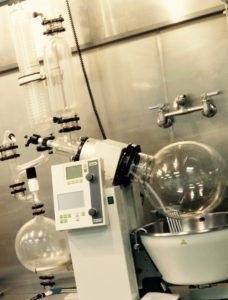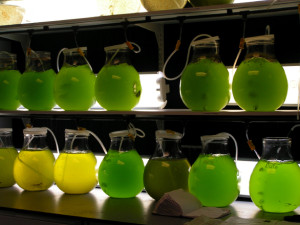Dietary Supplement Label Review Checklist
⊗ PACKAGING REQUIREMENTS
Five general requirements for labels include: 1) the statement of identity (name of the dietary supplement), 2) the net quantity of contents statement (amount of the dietary supplement), 3) the nutrition labeling (Supplement Facts Panel), 4) the ingredient list, and 5) the name and place of business of the manufacturer, packer, or distributor.
⊗ LABEL STATEMENTS
You must place all required label statements either on the front label panel (the principal display panel) or on the information panel (usually the label panel immediately to the right of the principal display panel, as seen by theconsumer when facing the product), unless otherwise specified by regulation(i.e., exemptions).
⊗ SUPPLEMENT FACTS PANEL
Total calories, calories from fat, total fat, saturated fat, cholesterol, sodium, totalcarbohydrate, dietary fiber, sugars, protein, vitamin A, vitamin C, calcium, andiron must be listed when they are present in measurable amounts. Calories from saturated fat and the amount of polyunsaturated fat, monounsaturated fat, soluble fiber, insoluble fiber, sugar alcohol, and other carbohydrate may be declared, but they must be declared when a claim is made about them.
⊗ INGREDIENT LIST
When present, you must place the ingredient list on dietary supplementsimmediately below the nutrition label, or if there is insufficient space belowthe nutrition label, immediately contiguous and to the right of the
nutrition label.
⊗ WARNING STATEMENT
FDA requires warning statements related to safety and special precautions that, if not followed, could make the product unsafe.
⊗ UNITS OF MEASUREMENT
Proper units of measurement must be used, for example milligrams (mg), micrograms (mcg) or other appropriate units
⊗ PERCENTAGE DAILY VALUE (DV)
The % DV must be declared for all dietary ingredients for which FDA has established Daily Values, except that 1) the percent for protein may be omitted, and 2) on the labels of dietary supplements to be used by infants, children less than 4 years of age, or pregnant or lactating women, you must not list any percent for total fat, saturated fat, cholesterol, total carbohydrate,dietary fiber, vitamin K, selenium, manganese, chromium, molybdenum,chloride, sodium, or potassium.
⊗ DOMESTIC ADDRESS OR PHONE NUMBER
The label of a dietary supplement being marketed in the United States must include a domestic address or domestic phone number through which the responsible person may receive a report of a serious adverse event with such dietary supplement. If the label does not include the required domestic address or phone number, the dietary supplement is misbranded.
⊗ UPC BAR CODE
The UPC bar code may be obtained from the Uniform Code Council (www.uc-council.org)
⊗ NATURAL AND ARTIFICIAL FLAVORS
You must declare these ingredients in ingredient lists by using either specific common or usual names or by using the declarations “natural flavor” or “artificial flavor,” or any combination thereof.
⊗ CHEMICAL PRESERVATIVES
You must list the common or usual name of the preservative, which may be followed by a description that explains its function e.g., “preservative,” “to retard spoilage,”“a mold inhibitor,” “to help protect flavor,” or “to promote color retention.”
⊗ OTHER DIETARY INGREDIENTS
You must list “other dietary ingredients” by common or usual name in acolumn or linear display. FDA has not specified an order that you must follow. You must list the quantitative amount by weight per serving immediately following the name of the dietary ingredient or in a separate column. You must place a symbol in the column for “% Daily Value” that refers to the footnote “Daily Value Not Established,” except that the symbol must follow the weight when you do not use the column format.
⊗ LIQUID EXTRACTS
You must list liquid extracts using the volume or weight of the total extract and the condition of the starting material prior to extraction when it was fresh. You may include information on the concentration of the dietary ingredient and the solvent used. The solvent must be identified in either the nutrition label or ingredient list.
⊗ DRIED EXTRACTS
For dietary ingredients that are extracts from which the solvent has been removed, you must list the weights of the dried extracts.
⊗ CONSTITUENTS
You may list constituents of a dietary ingredient indented under the dietary ingredient and followed by their quantitative amounts by weight per serving. You may declare the constituents in a column or in a linear display.
⊗ PROPRIETARY BLENDS
You must identify proprietary blends by use of the term “Proprietary Blend” or an appropriately descriptive term or fanciful name. On the same line, you must list the total weight of all “other dietary ingredients” contained in the blend. Indented underneath the name of the blend, you must list the “other dietary ingredients” in the blend, either in a column or linear fashion, in descending order of predominance by weight. These ingredients should be followed by a symbol referring to the footnote “Daily Value Not Established.”Dietary ingredients having RDIs or DRVs must be listed separately and the individual weights declared.
⊗ PRODUCT CLAIMS
Claims come in four basic varieties:
- structure/function claims
- disease claims
- health claims and qualified health claims
- content claims
Basically, dietary supplements cannot make “disease” claims (for example: “treats cancer”). Dietary supplements that make disease claims are considered by FDA as drugs.
Dietary supplements can make “structure/function” claims (for example, “calcium builds strong bones”). A structure/function claim describes the product’s role in maintaining the “structure or function of the body,” or “general well-being.”
The Federal Trade Commission (“FTC”) has overlapping jurisdiction with the federal Food and Drug Administration (“FDA”), and focuses more on whether advertising is truthful, or false and misleading. Thus, it is important to respect nuanced labeling rules, including those regarding the statement of the identity.
The regulation states that the term “high potency” may be used in a claim on the label or in labeling to describe individual vitamins or minerals thatare present at 100 percent or more of the Reference Daily Intakes (RDI) per reference amount customarily consumed (21 CFR 101.54(f)(1)(i)). This means a supplement may be labeled as “high potency” for each nutrient(s) that is present at 100% of the RDI per serving.
⊗ ANTIOXIDANT NUTRIENT CONTENT CLAIMS
A claim that describes the level of antioxidant nutrients present in a food is a nutrient content claim and may be used on the label or in the labeling of a food when the conditions of use in the regulation are met (21 CFR 101.54(g)).
The antioxidant nutrient must meet the requirements for nutrient content claims in 21 CFR 101.54.
⊗SUGAR-FREE CLAIMS
A dietary supplement may include claims in labeling such as “sugar free,” “no sugar,” or other claims provided it meets all of the eligibility criteria set forth in the regulation.
Among other requirements, a food must be labeled as “low calorie” or “reduced calorie” or bear a relative claim of special dietary usefulness. However, a dietary supplement that is prohibited from bearing a “low calorie”or “reduced calorie” claim can still use a sugar-free claim provided it meets the “low calorie” requirement in 21 CFR 101.60.
⊗HIGH OR GOOD SOURCE CLAIMS
You may make a “high” claim when your dietary supplement contains atleast 20% of the Daily Value (DV) (i.e. the Reference Daily Intake (RDI) or Daily Reference Value (DRV)) of the nutrient that is the subject of the claim perreference amount customarily consumed. You may make a “good source”claim when your dietary supplement contains 10 to 19% of DV.
⊗ LOW OR FREE-FROM CLAIMS
If a similar dietary supplement is normally expected to contain a nutrient and your dietary supplement is specially processed, altered, formulated, or reformulated as to lower the amount of the nutrient in the food, remove the nutrient in the food, or not include the nutrient, then you are permitted to make a “low” or “free” claim as applicable.
⊗ LOW CALORIE CLAIMS
A “low calorie” claim may not be made on dietary supplements, except when an equivalent amount of a dietary supplement that the labeled dietary supplement resembles and for which it substitutes (e.g., another protein supplement), normally exceeds the definition for “low calorie.”
⊗ QUALIFIED HEALTH CLAIMS
FDA will permit the use of a qualified health claim provided that 1) FDA hasissued a letter stating the conditions under which we will consider exercisingenforcement discretion for the specific health claim, 2) the qualified claim is accompanied by an agency-approved disclaimer, and 3) the claim meets all the general requirements for health claims in 21 CFR 101.14, except forthe requirement that the evidence for the claim meet the validity standard for authorizing a claim, and the requirement that the claim be made in accordance with an authorizing regulation.
This guidance was prepared by the Office of Nutritional Products, Labeling and Dietary Supplements (ONPLDS) in the Center for Food Safety and Applied Nutrition (CFSAN) at the U.S. Food and Drug Administration.
Further reading:
Article: Food and Supplement Claims with Confidence
Food and Supplement Testing for Natural Products
Dietary Supplement Facts and Label Review FAQ
Dietary Supplement and Food Label Review






